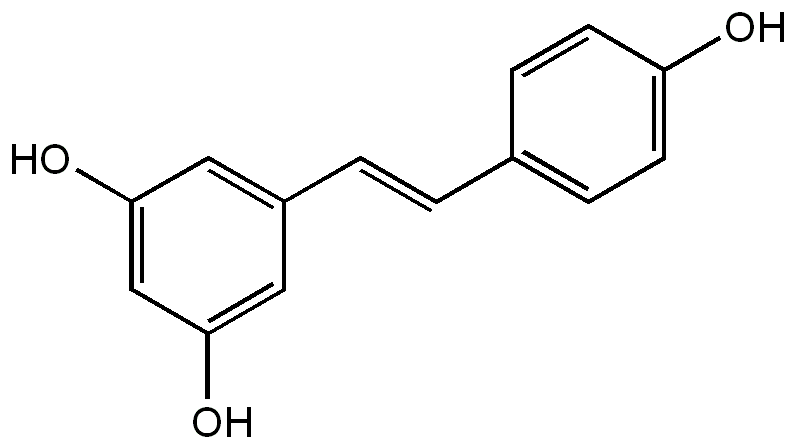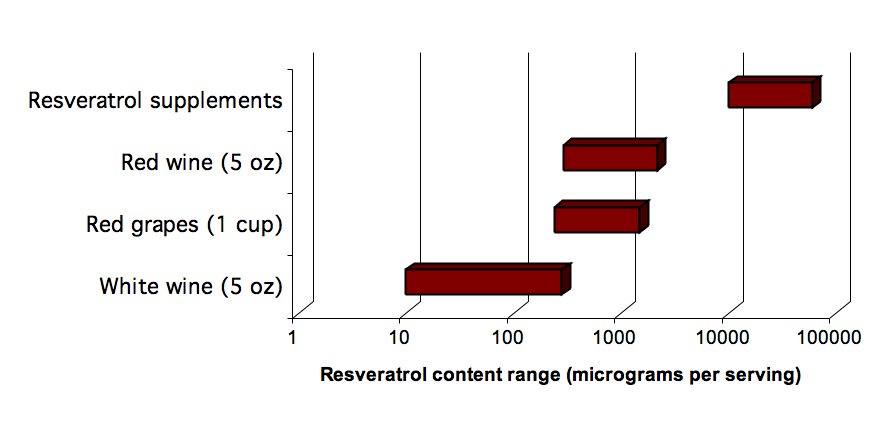This past week, Dr. Dipak Das, tenured research faculty at the University of Connecticut, was found guilty of 145 counts of research misconduct by an internal institutional review board. Das’s research findings had strongly supported the idea that resveratrol found in wine is capable of conveying health benefits to wine drinkers. It’s worth noting that even though Das was very prolific—that is, his lab turned out more than the average number of papers—Das didn’t publish in high-profile journals, whether because his work was rejected by the top-tier or because he chose to submit manuscripts only to less competitive publications. For more detail on Das’s scientific misconduct, see Tom Mansell’s piece published on Palate Press last week.
The biggest repercussions from Das’s fall may involve Longevinex, a resveratrol supplement company with which Das was associated. A statement on Longevinex’s website assertively rejects the possibility of Das’s misconduct affecting any of Longevinex’s claims. While it’s true, as the statement avows, that Photoshopping Western blot images (Das’s alleged crime) shouldn’t affect research findings based on photos of rat hearts that are key to Longevinex’s claims, it seems inevitable that the company will undergo further scrutiny. Incidentally, in light of the very extensive and apparently rock-solid evidence against Das (according to the university Scientific Review Board’s official summary of the investigation), it doesn’t exactly help Longevinex’s case that the company’s managing partner has publically suggested that the Das investigation might be a “witch hunt” directly aimed at undermining his company.
This seems a good opportunity to review what we know—or, perhaps, what we think we know—about resveratrol. Resveratrol is a bit tricky to pronounce, but it’s much easier than trans-3,4,’5-trihydroxystilbene, resveratrol’s chemical name. Although resveratrol has probably been used indirectly for centuries as a major constituent in herbs used by traditional Chinese medicine, it attracted Western medical attention in 1992 when researchers found substantial amounts of it in wine. Since then, it’s been a playground for molecular biologists, cardiology researchers, nutritionists, and pharmacologists alike. Medical miracles attributed to resveratrol essentially fall into four categories: prolonging life, halting cancer, healing damaged heart muscle, and anti-inflammatory effects.
We know that super-high doses of resveratrol allow yeast (S. cerivisiae), worms (C. elegans), fruit flies (D. melanogaster), and short-lived fish (N. furzeri) to live significantly longer: from 15% (in the case of the worms) to 66% (in the case of the yeasts.) In the yeast, the worms, and the fruit flies, we know that resveratrol activates the same pathway that seems to slow down aging when the same critters (and rodents) are put on semi-starvation diets1. If resveratrol can do the same thing in humans—a pretty big if, though not impossible—it might mean that we’d have a way of living longer without starving ourselves. Pretty exciting. What we need is evidence that it prolongs life in humans, and that’s what we don’t have yet.

Multiple different mouse studies (none of which were published by Das) have shown that applying resveratrol to the skin or taking resveratrol orally help prevent multiple types of cancer, including skin and colon cancers. We even know something about why (via inhibition of the cancer-promoting COX 1 and 2, among several other mechanisms involving drug metabolism, antioxidants, and angiogenesis2), which means that we might be able to develop synthetic drugs that do the same thing better. Still, all of the resveratrol-as-cancer-buster studies have been in mice. Mice don’t metabolize all drugs in the same way as humans, they’re often given drugs in high doses that don’t translate to realistic human doses, and they don’t live as long. Moreover, lab mice are bred to have very specific characteristics (they come in more varieties than Baskin-Robbins ice cream) that can interfere with how well they mimic human responses. All this means that the mouse studies are interesting, but don’t really prove anything about the effect of resveratrol on cancer in humans. Watch for news on whether resveratrol does anything against cancer in real live people; I expect that the studies are underway somewhere.
Resveratrol research comes closest to practical implementation when it comes to cardioprotective effects. A Hungarian study published just this month reports that several measures of heart function improved in people who took resveratrol supplements for three months after suffering a heart attack3. Resveratrol reduces clot formation (and therefore heart attack and stroke, much like aspirin) in rabbits. It also reduces the severity of atherosclerosis in rabbits fed a high-cholesterol diet4. Again, what we need to see is evidence that these same effects occur in humans.
Finally, resveratrol has well-documented anti-inflammatory effects. Inflammation is now thought to play a role in myriad diseases, from the usual suspects like arthritis to Alzheimer’s and type 2 diabetes, and whenever someone thinks to throw resveratrol at one of them, it seems to help. Numerous studies using brain cells or rats (but not whole, live humans, not yet) suggest that resveratrol can help protect the brain from the inflammatory plaques that cause Alzheimer’s5. Two small, recent studies in real live humans provide quite convincing evidence that resveratrol might help reduce signs of pre-diabetic insulin insensitivity6 and have other beneficial effects on metabolism in obese individuals7. I’m sincerely looking forward to seeing these studies replicated with more people.
Like many other potentially promising new drugs, the biggest problem with resveratrol is that we don’t know enough about it. No one seems to agree on how much resveratrol animals or humans should be given; amounts haven’t even been standardized for research purposes. Natural product that it is, wine can contain very different amounts of resveratrol depending on grape, origin, and processing, though red wines seem universally to contain more resveratrol than whites. Many supplements labeled “red wine extract” or “red grape extract” (as opposed to “resveratrol”) don’t state how much resveratrol they contain and are found to contain very little upon third-party analysis. On the other hand, studies testing the safety of resveratrol in humans suggest that even very high doses—5000 times the amount found in an average glass of red wine—are safe. Even still, pharmacologists have reason to believe that this gargantuan dose may not be enough to mimic in humans anti-cancer effects seen on cells in petri dishes.
The few studies using humans have not only involved a small number of people but, more importantly, haven’t lasted very long. We have no idea what the long-term effects of resveratrol are on any disease. Exercising its usual caution, the United States Federal Drug Administration (FDA) ruled in 2000 that there is an “inadequate basis for reasonable expectation of safety” regarding resveratrol as a dietary ingredient8. While supplement companies can and do market resveratrol in pills and health beverages and such, lack of FDA backing means that they cannot legally claim that resveratrol has any health benefits. There may come a day when the medical and scientific communities have enough evidence to back resveratrol as a useful drug. Right now, we honestly can’t say whether resveratrol is helpful, harmful, or useless.
Dr. Das has very little to do with all of this. A brief scan of his recent papers gives me the impression that the data he faked primarily has to do with molecular markers of improved cardiac function in mice. In other words, the questionable data suggested that resveratrol helped mouse heart cells repair themselves after a heart attack or other damage caused by clogged blood vessels. These sort of findings are always tested out in humans before anyone in the scientific or medical communities takes them too seriously. There is more than sufficient data on the effects of resveratrol in mice without Dr. Das’s data to warrant testing its effects in humans; throwing his research out the window really doesn’t change much. Still, we can all be gratified that the long and expensive process of human testing won’t take place on his account.
 Erika Szymanski was blessed with parents who taught her that wine was part of a good meal, who believed that well-behaved children belonged in tasting rooms with their parents, and who had way too many books. Averting a mid-life crisis in advance, she recently returned to her native Pacific Northwest to study for a PhD in microbial enology at Washington State University. Her goal, apart from someday having goats, is melding a winery job to research on how to improve the success rate of spontaneous ferments. When tending her Brettanomyces leaves enough time, her blog Wine-o-scope keeps notes on why being a wine geek is fun.
Erika Szymanski was blessed with parents who taught her that wine was part of a good meal, who believed that well-behaved children belonged in tasting rooms with their parents, and who had way too many books. Averting a mid-life crisis in advance, she recently returned to her native Pacific Northwest to study for a PhD in microbial enology at Washington State University. Her goal, apart from someday having goats, is melding a winery job to research on how to improve the success rate of spontaneous ferments. When tending her Brettanomyces leaves enough time, her blog Wine-o-scope keeps notes on why being a wine geek is fun.
